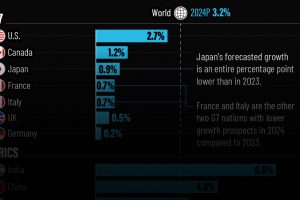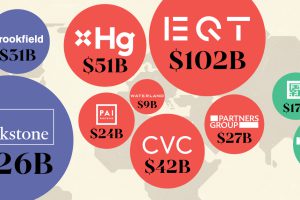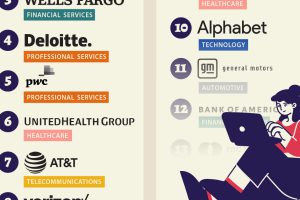The Reputational Risks That CEOs are Most Worried About
View the full-size version of the infographic by clicking here
Building an enduring business isn’t easy work.
It can take decades to earn trust and respect in a given market, and it only takes one terrible miscue to unravel all of that goodwill.
As a result, it’s no surprise that the world’s best CEOs think a lot about evaluating these kinds of risks. So what do executives see as being the biggest reputational risks lingering over the next 12 months for their businesses?
Risky Business
Today’s infographic comes to us from Raconteur, and it breaks down the near-term reputational risks seen by CEOs as based on research by Deloitte.
The concerns highlighted in the survey fall into three major categories:
- Security risks: including physical and cyber breaches (41%)
- Supply chain: risks arising from extended enterprise and key partners (37%)
- Crisis response capabilities: how the organization deals with crises (35%)
Let’s dive a little deeper, to see why these broad areas are such a concern.
Security Risks
As more people work remotely, CEOs see a rising risk stemming from data breaches.
Although 89% of the C-suite believes that employees will do everything they can do to safeguard information, about 22% say their employees aren’t aware of offsite data policies. The devices most at risk, according to this group, are company mobile phones (50%), company laptops (45%) and USB storage devices (41%).
Supply Chain Risk
When it comes to maintaining the quality of your product or service, it’s not optimal to be reliant on third-parties.
However, it’s also unlikely for companies to be fully vertically integrated – somewhere along the way, you need to get raw materials from a supplier, or you need to rely on a logistics company to deliver your goods to market. The more borders that need to be crossed, and the further an item has to go, the more complicated it all gets.
In terms of supply chain risk, CEOs are mostly concerned about government action (or inaction): uncertainty about policy, over-regulation, trade conflicts, geopolitical uncertainty, and protectionism were all items that registered high on the list.
Crisis Management
It pays to be prepared when it comes to crises.
The only problem? It would seem the data that C-level execs need to make emergency decisions is not up to snuff. For example, 95% of CEOs see customer and client data as being necessary in such a situation, but only 15% of companies are successfully collecting such data.
The same gap seems to occur when it comes to other types of data, including brand reputation data, financial forecasts and projections, employee needs and views, industry peer benchmarking, and supply chain data.





